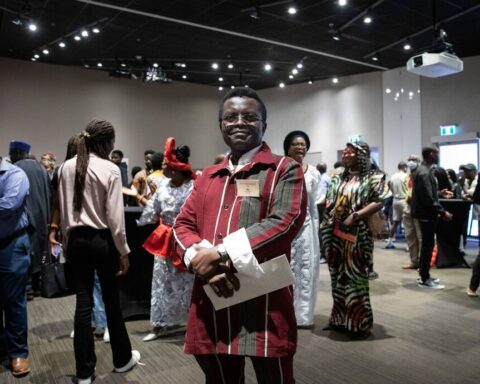Several years ago, I wrote a book review that elicited vociferous comments online. The book centred on the constrained lives of a pair of young women in South Asia. I had criticized the way the author, in my view, neglected serious craft issues, such as character development, in favour of gratuitous cultural displays. The commentators were upset by my attitude, my ignorance, my regional ethnicity, and my deference to mysterious “white Canadian academic colleagues.” They seemed to know a great deal more about me than I did.
At the time, I was startled, but now I think that they were, in part, responding within a broader climate, one in which the very act of explaining or depicting elements of a foreign culture is a sacrosanct literary technique. Perhaps the critic’s critics were right in one sense: As a Canadian woman of South Asian descent, I could not fully grasp the personal significance the narrative might have for readers trapped in lives similar to those of the heroines. Maybe, the whole critical apparatus I brought to the work was insensitive or incomplete. But it was the author’s responsibility to make me see this to some extent, by inducing me to believe in his characters and buy into his plot, instead of dragging me out to shop for saris for no good reason.
When one thinks of ‘immigrant literature’ in this country, a fairly recent phenomenon comes to mind: literature by immigrants, but not, for the most part, about immigration, a great deal of it focusing on life in an ancestral country. In even those recent books dealing with the lives of Canadian immigrants, the present is often overshadowed by a foreign history (Can You Hear the Nightbird Call?). The author Robert J. Wiersema, reviewing M.G. Vassanji’s The Magic of Saida, invoked Faulkner’s famous quote about the past not even being past. Vassanji has himself remarked on his need to renovate a history obscured by the cultural signifiers of colonial masters: “we didn’t even know the names of the flowers that grew in our own gardens.”
Fuelling the present
This project is highly laudable, but one would like this renovation to fuel the present also, instead of obscuring it. In spite of the great skill possessed by many of its prize-winning practitioners, and though there are notable exceptions – the work of Rohinton Mistry and Rawi Hage springs to mind — there has been something contrived about our so-called ‘immigrant literature,’ about its ubiquitous silk-and-spice book covers, about, as Miguel Syjuco, the young author of Ilustrado, put it in an interview, “earth the colour of tamarind and all that crap.”
Is this because the category of ‘immigrant literature’ is itself a contrivance? Lolita, for instance, is by an immigrant about an immigrant, but no one would principally categorize it as part of American ‘immigrant literature.’ The Canadian prairie classic, As For Me and My House, features geographic movement as a symbol of restless spiritual desire; the central characters, the Bentleys, migrate to a small town aptly named Horizon. As it fails to fulfill their longings, they begin to hope for something bigger – a city — and take under their wing the socially isolated child of an Eastern European immigrant. Yet no one would call As For Me and My House a novel about migration or immigrants.
Who wrote with a keener perception about migrants, immigrants, refugees and exiles than the recently deceased Mavis Gallant? In her story Potter, the title character, a Polish émigré, idealizes a seemingly carefree Canadian girl who mangles his real name (Piotr). Is there much difference, in human significance, between the way Potter is quizzed about where he learnt his table manners by French ladies at a dinner party, and the way the American-born Gogol Ganguli, hero of Jhumpa Lahiri’s The Namesake, is asked by well-heeled New Englanders whether he needs shots to travel to India?
Universal metaphors
Few mainstream writers now tap, as Gallant did, into migration, exile, refuge as metaphors for something eternally vagrant and hungry in the human condition. Neither do most ‘immigrant’ writers, who largely tether themselves to the social and political. This last fact is beginning to change. Hage explores the existential dimensions of cultural alienation in Cockroach, while Shashi Bhat’s The Family Took Shape portrays, through the lens of one Indo-Canadian family, the universal challenge of achieving family cohesion in the face of loss and disability.
For the most part, though, the literary landscape remains polarized: the ‘immigrants’ are over there, everyone else is over here.
This has resulted in impoverishment all round. As novelist Dimitri Nasrallah points out in his NCM essay about Alice Munro’s historic Nobel Prize for Literature, if one of her stories about male violence against women had played out in a real-life immigrant family, it would probably have furnished “talking points for the underbelly of multiculturalism” instead of being understood as a moral drama. (Nasrallah’s piece implies that Munro’s universality has not been fully grasped by some commentators, who see her stories as peculiar to small-town Canadian life). Nasrallah goes on to suggest that, just like the small Ontario towns in which Munro’s stories are set, “immigration … is only a surface too.” As long as we fetishize immigrant status in the literary world, treating it as something in itself, and not as a point of embarkation toward wider human issues of isolation, longing, restlessness, alienation, and suffering, we will not see anybody truly.
The ambiguity of this website’s name is an expression of the deeper potentialities in all immigration; it is less the newness of the Canadian that matters than the possibility of Canadian newness. We will not feature books or writers or reviewers based only on how newly Canadian they are, but will consider their power to renovate our Canadianness – to cast old things in a new light, or bring new things to light. This will be, I hope, a new books page for all Canadians.
Aparna Sanyal writes regularly for the books section of the Globe and Mail. The former editor of the nationally distributed Montreal Review of Books, she has blogged on books for the Montreal Gazette, sat on the board of Qwrite, the quarterly publication of the Quebec Writers’ Federation, and served as juror for the 2009 Hugh MacLennan fiction prize. Her creative work has appeared in Hayden’s Ferry Review, Malahat Review, River Oak Review, Pif Magazine, and elsewhere.
A versatile, disciplined writer-editor-journalist with 10+ years of developing a wide range of written materials for various publications.





